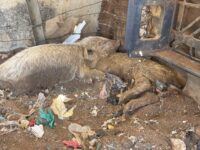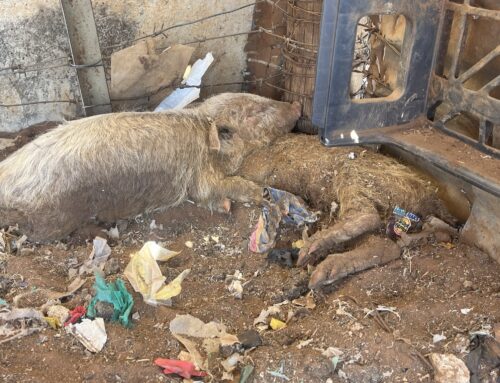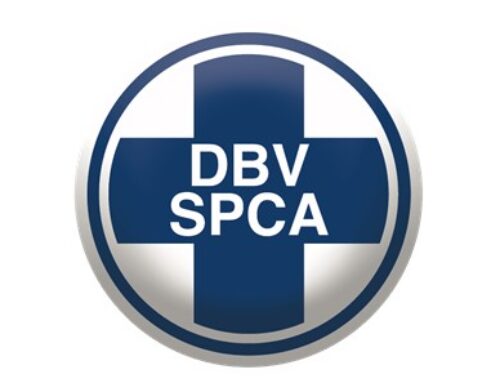The African lion is one of the most loved and iconic animals of the world, making them one of the biggest drawcards for travellers to Africa. However, most of South Africa’s lions are held in captivity and reduced to basically an intensively bred farmed animal that is commercially exploited at every stage of their lives.
A joint inspection initiated by the NSPCA with the Environmental Management Inspectors from DESTEA was carried out on the 3rd of August 2021 on a lion breeding farm in the Free State Province. The inspection carried out matched that of an old familiar scene NSPCA Inspectors are familiar with regarding lion farming.
Numerous contraventions in terms of the Animals Protection Act No. 71 of 1962 were found during the inspection, including but not limited to:
– Four lions were found with various physical and/or other health conditions of which no veterinary treatment and care had been procured for the animals;
– Ten lions did not have access to drinking water at all;
-Seventeen lions had access to unhygienic drinking water;
-Several enclosures housing lions were found in an unhygienic state with an accumulation of fresh and calcified faeces as well as decomposing food and bones;
-Several animals did not have access to shelter to protect them from inclement weather conditions;
-Several lions were kept in overcrowded conditions;
-Several lions were infested with external parasites;
-Thirteen lion carcasses were discovered within a locked freezer container. The lion carcasses were stored together with the lion food supply; and
-The freezer container was found in an unhygienic state with blood and old rotten meat on the floor.
Due to existing animal welfare concerns found at the lion breeding farm, the NSPCA’s concern over the lion carcasses is not only based on how these lions were kept while alive but also, how they died. The NSPCA has reasonable cause to believe the deaths were not natural. Considering our suspicions, 7 of the 13 carcasses were seized in terms of our warrant conditions and were sent for full post-mortem analysis and report.
The NSPCA is in the process of extended investigations, including gathering further evidence to ensure that justice is found for these lions.
The NSPCA welcomes the support given by DESTEA and look forward to future collaboration efforts in the interest of improving wildlife welfare.
If you are as passionate about animals and their well-being as we are, consider supporting our causes by donating.
Latest News Posts
Will You Be the One Who Takes Action?
Most people will scroll past this. But will you be the one who stands up for animals?
Animal welfare isn’t always in the spotlight, but it changes lives – for every neglected, abused, or suffering animal we help. Our teams work tirelessly, often behind the scenes, ensuring animals across South Africa are protected.
This work is relentless. The challenges are immense. But with more hands, hearts, and resources, we can do even more.
The equation is simple: the more supporters we have, the greater our reach, the stronger our impact.
Be part of the change. Become an NSPCA Project Partner today. From just R50 per month, you can help ensure that no animal suffers in silence.








